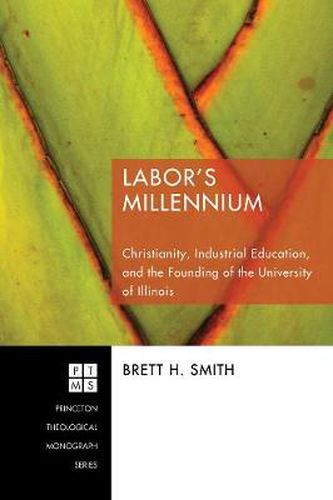Readings Newsletter
Become a Readings Member to make your shopping experience even easier.
Sign in or sign up for free!
You’re not far away from qualifying for FREE standard shipping within Australia
You’ve qualified for FREE standard shipping within Australia
The cart is loading…






This title is printed to order. This book may have been self-published. If so, we cannot guarantee the quality of the content. In the main most books will have gone through the editing process however some may not. We therefore suggest that you be aware of this before ordering this book. If in doubt check either the author or publisher’s details as we are unable to accept any returns unless they are faulty. Please contact us if you have any questions.
Historians have traditionally interpreted the American land-grant higher-education movement as the result of political and economic forces. Little attention has been given, however, to any explicit or implicit theological motivations for the movement. This book tells the story of how the Christian belief of many founders of the University of Illinois motivated their educational theory and practice. Constructing a social gospel of labor’s millennium (their shorthand for God’s kingdom being enhanced through agricultural and mechanical education), they initially proposed that the university would impart a millenarian blessing for the larger society by providing abundant food, economic prosperity, vocational dignity, and a charitable spirit of sacred unity and public service. Rich in primary-source research, Smith’s account builds a compelling case for at least one such institution’s adaptation of an inherited evangelical educational tradition, transitioning into a new era of higher learning that has left its mark on university life today.
$9.00 standard shipping within Australia
FREE standard shipping within Australia for orders over $100.00
Express & International shipping calculated at checkout
Stock availability can be subject to change without notice. We recommend calling the shop or contacting our online team to check availability of low stock items. Please see our Shopping Online page for more details.
This title is printed to order. This book may have been self-published. If so, we cannot guarantee the quality of the content. In the main most books will have gone through the editing process however some may not. We therefore suggest that you be aware of this before ordering this book. If in doubt check either the author or publisher’s details as we are unable to accept any returns unless they are faulty. Please contact us if you have any questions.
Historians have traditionally interpreted the American land-grant higher-education movement as the result of political and economic forces. Little attention has been given, however, to any explicit or implicit theological motivations for the movement. This book tells the story of how the Christian belief of many founders of the University of Illinois motivated their educational theory and practice. Constructing a social gospel of labor’s millennium (their shorthand for God’s kingdom being enhanced through agricultural and mechanical education), they initially proposed that the university would impart a millenarian blessing for the larger society by providing abundant food, economic prosperity, vocational dignity, and a charitable spirit of sacred unity and public service. Rich in primary-source research, Smith’s account builds a compelling case for at least one such institution’s adaptation of an inherited evangelical educational tradition, transitioning into a new era of higher learning that has left its mark on university life today.